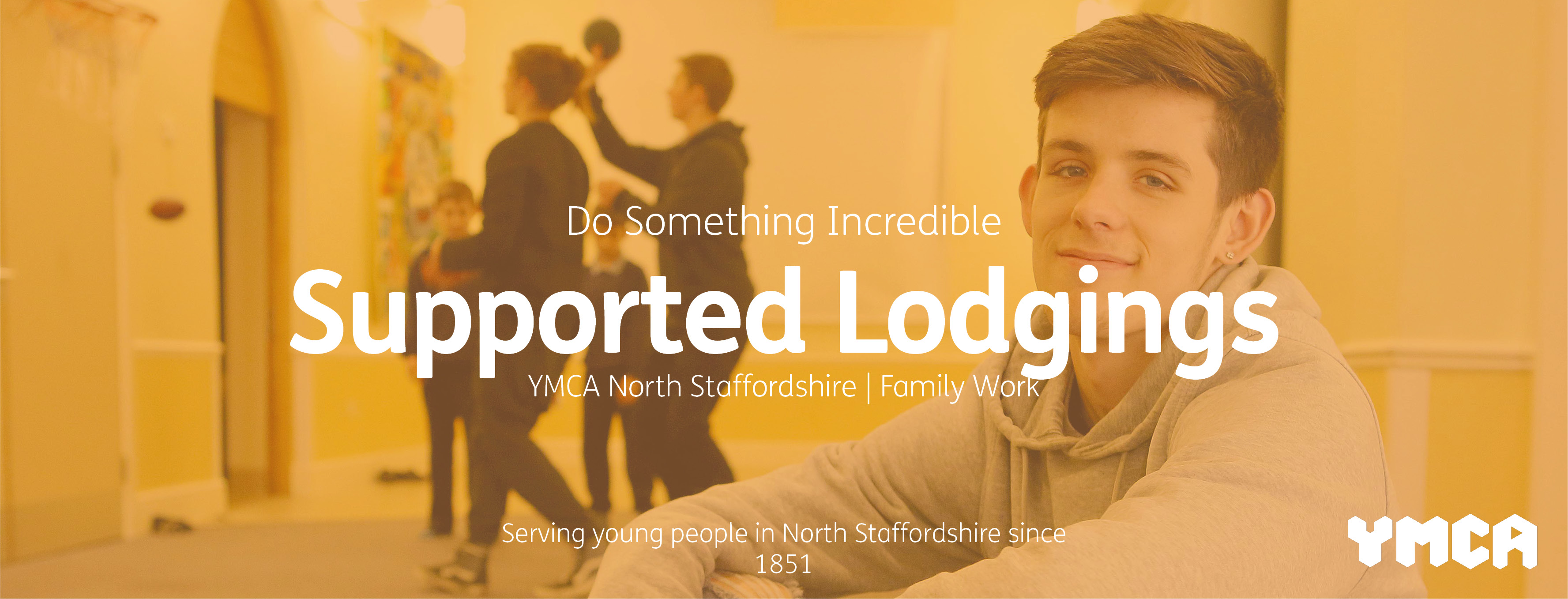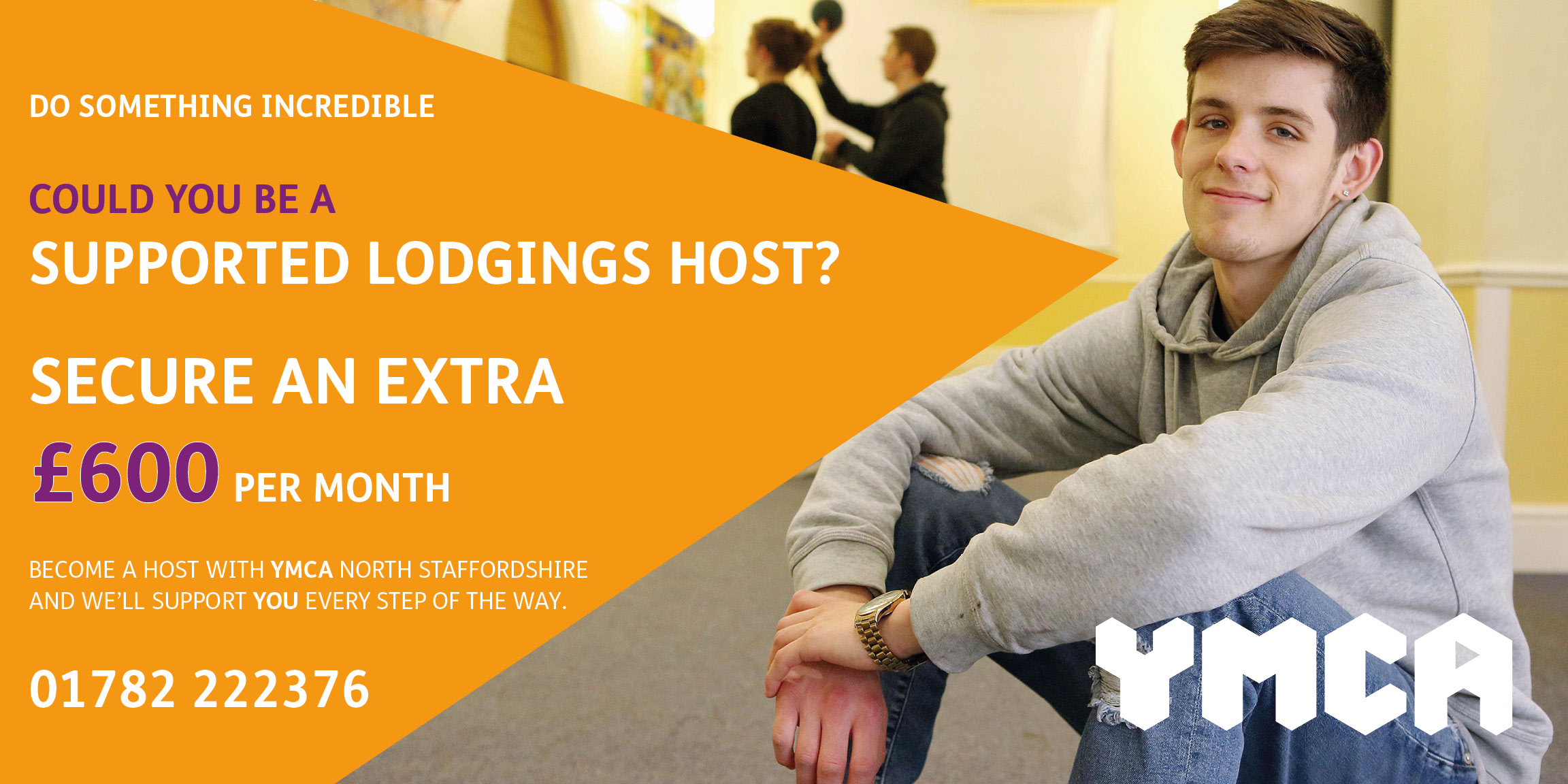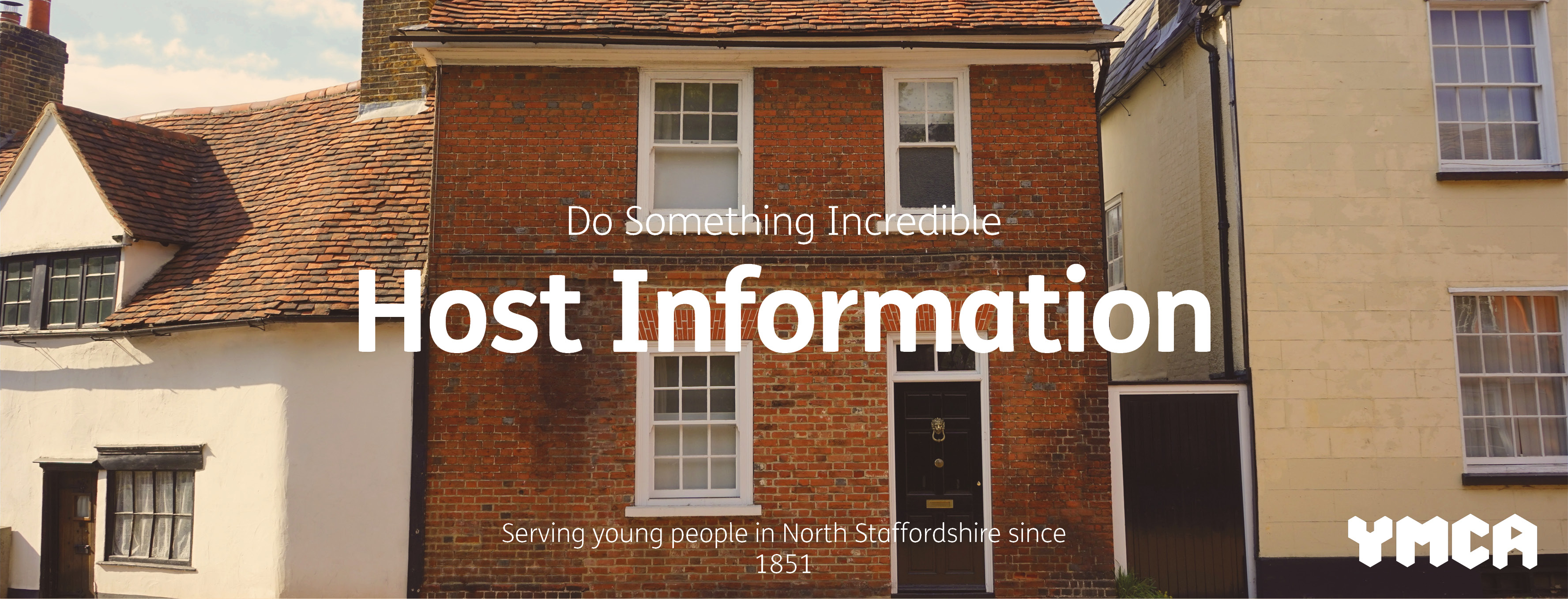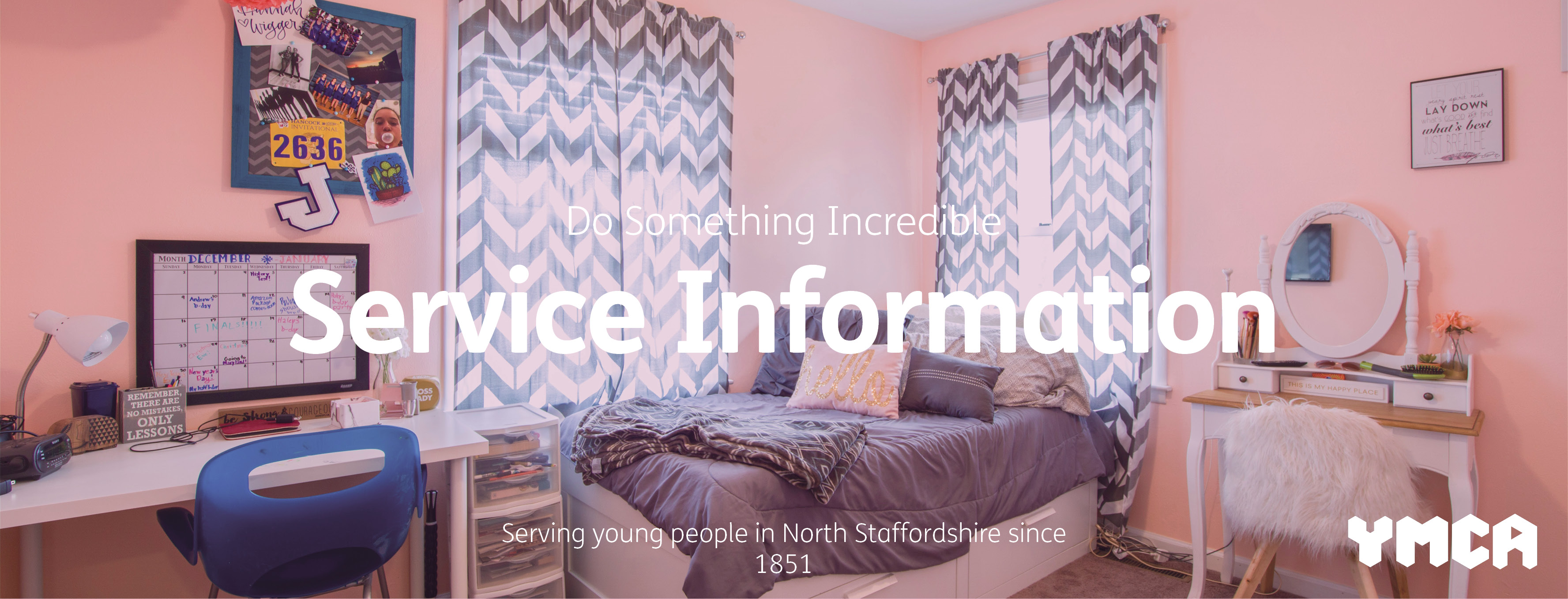Frequently Asked Questions
Will I receive an income to support the young person?
YES! Hosts will receive £300 every 2 weeks, this amounts to £7,800 per annum
Can I become a host?
We welcome applications from everyone, whether you are:
- a single person, a couple or a family
- working or unemployed
- married or unmarried.
- a homeowner or a tenant
We ask you to provide guidance and support to help young people become independent and confident adults. In supported lodgings, young people can learn to take responsibility for their own lives and find out how their actions affect not only themselves but others they live with.
How do I become a host?
EASY! Contact our dedicated Supported Lodgings Team. The team will meet with you to tell you all about the project and answer any questions you might have and give you a welcome pack which reiterates all the information. If you want to pursue this, one of the team will complete an assessment, a report and invite you to attend a host interview panel.
Call – 01782 222376
Is my home suitable?
Your home can be large or small, old or new, rented or owned, (you must get permission from your landlord if you are a tenant).
It is expected that you will provide the young person with their own bedroom, all other communal rooms and facilities will be shared.
A health and safety risk assessment will be completed on your home.
What is Supported Lodgings?
As a host, you will provide a young person with a bedroom in your home. Young people will get support and guidance from hosts to eventually move towards independent living
This might include helping young people develop life skills such as:
- Budgeting skills
- Basic personal skills
- Basic cooking
- Social skills.
- Accessing school, college, an apprenticeship or work.
Do I need a DBS check?
Yes! An enhanced DBS is required for everyone in the home that is over 18 years old. The cost of this will be covered by YMCA.
The Disclosing and Barring Service (DBS)
You will also need to complete a medical questionnaire.
Will I have to pay income tax on the money I earn providing Supported Lodgings?
It depends on your total taxable income.
Your payment should be added to your taxable income for the year. You have to pay income tax if your total taxable income is greater than your tax allowances. Tax allowances vary according to your circumstances. If you’re unsure of what your tax allowance is, contact your local tax office.
Will I have to pay extra Council Tax?
People under 18 do not count as adults for council tax, so if you’re claiming lone occupancy, it won’t be affected.
Once they reach age 18 you’ll need to pay the full rate unless they are in education. It will be your responsibility to inform your local authority.
Can I offer Supported Lodgings if I am on benefits?
Yes! However, we strongly advise that you discuss this with your benefits office.
What qualities do YMCA look for in a host?
We’re looking for the competencies below. These are what we assess you on and form your report that is considered by the panel.
Can you:
- provide care to young people, which promotes healthy emotional and physical development
- set appropriate boundaries and help young people resolve conflict
- listen and communicate with young people appropriate to their age and understanding.
- provide a safe and caring environment
- ensure that young people are cared for in an environment where they are safe from harm and abuse and where they can make changes and be supported to develop and take responsibility for their own safe care.
- help young people develop strategies to keep themselves safe from harm and abuse, and to know how to seek help if their safety is threatened.
- work as part of a team
- communicate effectively
- keep information about the young person confidential from those that do not need to know – we’ll discuss this with you
- promote equality, diversity and the rights of individuals.
- appreciate how personal experiences have affected the young person and their families, and the impact that offering supported lodgings is likely to have on them.
- make a commitment to a young person and sustain a positive attitude and approach during stressful periods.
Will I have to attend any training?
Yes! There is some mandatory training you need to attend before becoming a host.
Training included:
- 4 x 2hours per week (in the evening) host preparation course
- Level 1 safeguarding
What support will I receive?
Our dedicated team are very proud of the level of support offered, the team are available throughout the day either by mobile, text, landline or email and make every effort to respond within the hour if they are not able to respond immediately. After hours and weekends, the YMCA campus is on hand to give any advice and support that is needed (24/7 support available).
There is also a comprehensive training programme (after completing the mandatory training) to enhance your skills so that you can become the best host you can be. Again, this will be at no cost to you.
Can I speak with other hosts?
Absolutely! Hosts are more than happy to speak to any new or prospective host and answer any questions you may have. They are the best people to talk to, as they are already doing the role!
We also have regular host social evenings where you meet with the team, other hosts and guest speakers. We also make time for refreshments and a cuppa, a great networking/support opportunity.
Will I meet the young person before they come and live in my home?
We make every effort to arrange a robust package of introductions, meetings, moving in and share as much information with you on the young person as possible.
However, sometimes this is not possible owing to the young person needing a settled and secure home immediately. We ensure that you are well supported throughout this process and beyond.
Who are the young people?
Our young people range from 16 -25 years old.
There are many reasons young people need our service and your home. They may:
- have been living with their family but there has been a breakdown in their relationship and it is no longer safe or possible for them to stay there.
- be young people leaving care and are not yet ready for independent living.
- be young people who are sofa surfing or sleeping rough.
We believe every family should have the support they need to develop and lead more fulfilling lives





